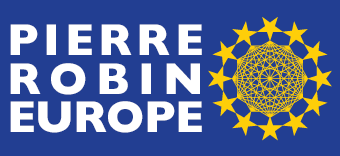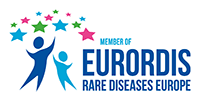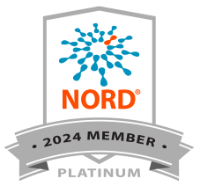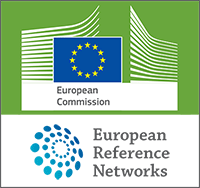EURORDIS – letter of support
The European Organisation for Rare Diseases (EURORDIS) is the largest rare disease patient organization in the EU. EURORDIS wrote a highly detailed letter of support to L’Assurance Maladie, France’s national health insurance fund, explaining why they too believe the rejection violated EU law. EURORDIS has pledged to accompany us, Lysiane’s parents, in court, all the way up to the European Court of Justice.

17 November 2017
Mr. Nicolas Revel
General Director
Caisse Nationale d’Assurance Maladie
50, avenue du Professeur André Lemierre
75986 Paris Cedex 20
Subject: Access to healthcare in another Member State – child Lysiane Pakter
Dear Mr. General Director,
EURORDIS, the European Organization for Rare Diseases, defends the rights of patients to access healthcare in other Member States of the European Union and the European Economic Area, among other activities.
In this capacity, EURORDIS supports Lysiane Pakter’s parents, in the face of L’Assurance Maladie’s refusal of their request for planned healthcare in Germany.
During the debates which took place in the European Parliament prior to the adoption of Directive 2011/24/EU of 9 March 2011 on the application of patients’ rights in cross-border healthcare, EURORDIS advocated for the adoption of the Directive, based on the limitations we identified in Regulation 883/2004 and the S2 Form.
The vagueness of Regulation 883/2004 in certain situations led the European Court of Justice (the ECJ) to issue a number of legal decisions, for example the ECJ’s judgment in case 157/99, 12/07/2001, the Geraets-Smits case. This substantial body of ECJ jurisprudence led the European authorities to fill the legal vacuum, by adopting Directive 2011/24/EU.
In no case should the national transposition of the Directive constitute a regression, when viewed in relation to the case law of the ECJ. In the Geraets-Smits case, the ECJ states that:
- Prior authorization can not be refused if the treatment is sufficiently tested and validated by international medical science, and
- Prior authorization can be refused when the same or equally effective treatment for the patient can be obtained without undue delay from an institution which has entered into an agreement with the health insurance fund to which the insured person belongs (absence of medical necessity)
Transposition of the Directive into French law
The Public Health Code, Article R160-2, as amended by Decree No. 2017-736 of 3 May 2017, Art. 1, states that:
II. The authorization can not be refused when the following conditions are met:
- Coverage of the medical treatment sought is provided for by the French regulations;
- The treatment sought is appropriate based on the patient’s state of health;
- The same or equally effective treatment can not be obtained in France within a medically acceptable timeframe, taking into account the patient’s current state of health, and the probable course of the patient’s condition.
In the matter of Lysiane
Regarding point 1: medical treatments involving surgical techniques (mandibular distraction osteogenesis, mandibular traction, tracheostomy, insertion of a nasopharyngeal tube…) to treat Pierre Robin sequence are provided for by France’s healthcare provisions. The community has arranged for babies born with this medical syndrome to be treated. One technique, labioglossopexy, involves the sewing of the tip of the baby’s tongue to the baby’s lower lip; it has a high rate of failure, due to the tearing of the baby’s tongue or the baby’s lip. If this type of treatment is covered by the French regulations then a non-surgical alternative method such as the Tübingen Palatal Plate with velar extension (the TPP), which is not disabling, and which, in a word, is not barbaric, is just as worthy of being covered.
Regarding point 2: the medical studies listed in this letter’s annex confirm the greater effectiveness of the TPP treatment proposed in Germany.
Regarding point 3: the baby should be fitted with the TPP device shortly after birth, a time period too brief to allow the French healthcare system to learn the technique, without exposing the baby to a loss of chance.
The treatment proposed in Germany (the Tübingen Palatal Plate with velar extension, the TPP) is indicated for treating feeding and breathing difficulties in the context of Pierre Robin sequence, but this is the only thing it has in common with the treatments proposed in France. The treatments offered in France are not the same: neither mechanical ventilation assistance, with all the limitations it imposes on the young child’s movement, nor complex and painful surgical interventions. Thus Lysiane was hospitalized in France for 5 consecutive weeks in an intensive care ward, with no scheduled release date, except for the eventual possibility of home hospitalization, with mechanical ventilation assistance.
Furthermore, the treatments offered in France appear less effective than the TPP treatment; the authors of the prospective study (No. 1 in the annex) conclude: “This prospective longitudinal cohort study confirms the effectiveness of the [Tübingen Palatal Plate] in improving upper airway obstruction and weight gain in infants admitted with (mostly isolated) RS.”
Finally, this TPP device has been tested by multiple teams, and a third of babies born with Pierre Robin sequence in Germany already benefit from this treatment (see the selection of medical studies listed in the annex).
If the opinion of French experts is that it would be advisable to carry out a comparative controlled study before deciding to cover this treatment, then we must rebut the idea of a direct comparison; this is simply no longer ethically possible. Comparative data involving historical studies do however already allow this treatment to be compared with other treatments (indirect comparison).
The authors of the study cited above (“Multicenter study on the effectiveness of the pre-epiglottic baton plate for airway obstruction and feeding problems in Robin sequence”, Poets et al., Orphanet Journal of Rare Diseases, 2017, 12:46) point this out; the measurement of weight gain achieved with the different treatment techniques makes it possible to compare their relative effectiveness.
On this basis the TPP treatment is at least as effective as the other methods, or more effective. In any case in terms of the baby’s comfort, and quality of life, and safety too, the TPP treatment is superior.
Furthermore, clinical equipoise is no longer present, at least in Germany, where doctors and parents are informed about the different techniques which are available for treating this rare disease. No doctor would be willing to carry out a randomized clinical trial in which the treatment to be administered to each baby is randomly selected. Based on current knowledge of the various treatments, they are already convinced of the overall superiority of the TPP technique. Parents would refuse it as well.
“Clearly, a controlled study design would have been preferable. This, however, was impossible in participating centers, as there was no longer equipoise among team members. However, we tried everything possible to minimize other potential sources of bias and thus consider our results valid against a background of studies performed in patients with rare conditions.”
What EURORDIS advocates in general
Regarding the transposition of Directive 2011/24/EU by Member States, EURORDIS has advocated the following principles:
- Effectiveness: the measures taken by Member States must be of a nature to assist citizens in their efforts, and healthcare administrations must put themselves at the service of citizens and help them exercise their rights
- Proportionality: the Directive imposes limits on the prior authorization system, restricting it to what is necessary and proportionate to the objective to be achieved; it may not constitute a means of arbitrary discrimination or an unjustified obstacle to the free movement of patients, in accordance with Article 8.1
- Justice: the system of prior authorization must allow the applicant to submit his application and to lodge an appeal if his application has been refused, and the administration must inquire with experts who are familiar with the disease before authorizing or rejecting the patient’s application for healthcare abroad
In the interest of French citizens, EURORDIS asks you to respect these principles. The Directive was adopted precisely to allow patients to access the most effective treatment available in the European Union, even if that treatment is not available in their Member State of affiliation.
According to experts who treat children suffering from Pierre Robin sequence: “If the functional difficulties are managed effectively during the first year of life, the prognosis is favorable. Feeding and breathing difficulties, as well as glossoptosis, improve in the first 2 years of life; mandibular growth corrects retrognathism in 3 to 6 years. The cleft palate can be closed surgically before 9 months. The neurological prognosis of these children is thus good.”
EURORDIS invites you to urgently consider the case of this baby and others in the same situation in order to facilitate their right to access quality care. Failure to do so could result in a loss of chance, with significant long term impact throughout their entire lives.
With sincere compliments, please kindly accept, Sir, the expression of my most profound respect.
François Houÿez, Director of Access to Care
EURORDIS

CC: Ms. Emmanuelle Lafoux, General Director, Caisse Primaire d’Assurance Maladie de Lyon











